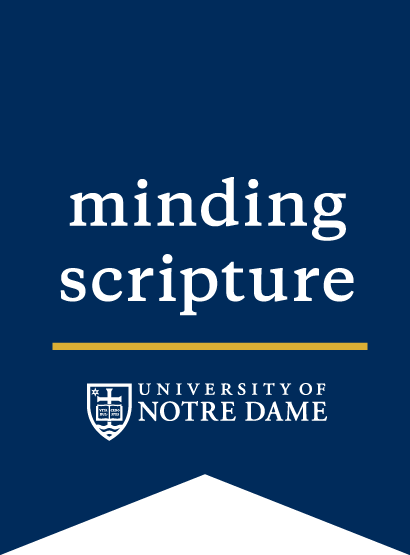Show Notes
Join our hosts Gabriel Reynolds, Mun’im Sirry, and Tzvi Novick to discuss the Prophet Noah according to the Bible and the Qur’an. How should the flood be understood according to the Bible and Qur’an? How does the Qur’an depict Noah, and how does the prophet’s relationship with God reflect upon God’s relationship with humanity as a whole? Can Noah be considered a moral exemplar?
First, our hosts explore how the story of the Ark hearkens back to similar quasi-mythological depictions found in Genesis. As Novick explains, there is a vast repository of Near Eastern narrative myths and legends to which the Bible relates. To what extent are we to construe early stories such as the Flood and the Garden of Eden as literal?
Further, there are debates about whether the scriptural flood is local or universal; how do Islam, Judaism, and Christianity approach this question? Novick explains that, in the Jewish understanding, the flood is a profound cosmological and theological event echoing the Genesis creation story. However, from a practical standpoint, one can easily imagine a relatively local, catastrophic flood inspired the theological narrative. According to Sirry, the Qur’an does not claim either a local or global event. Rather than massive global destruction, there seems to be something different at stake in the Qur’an: it is one in a series of stories on divine punishment and salvation.
Our hosts next dive into some points of contrast between the Bible and Qur’an’s depiction of the Noah story. In the Qur’an, Noah’s role as a prophet is indicated clearly by his effort to warn his people of the impending destruction. The prophet is depicted as a communicator of mercy in direct communication with Muhammad’s own people.
The Bible and Qur’an also seem to relate different understandings of Noah’s family: In Sura 11, one of Noah’s sons drowns out of his disbelief. Questions regarding this lost son’s identity have led many to a reference in the Hadith that the lost son is Canaan. However, the Bible claims that Canaan is the son of Ham, thus the grandson of Noah. What does this Sura tell believers about the meaning of family and the boundaries between God and man?
Further, in both the Qur’an and the Bible the moral status of Noah as a prophet remains complex. After the flood, the Bible narrates that Noah engaged in drunkenness, which led to the division between Ham, the father of Canaan, and the rest of his family. In the Jewish reception of the story, there is a tendency to find Noah to be a complex figure in contrast with Abraham. However, this provides a tension between the standard reading in Islam and the Jewish reading: according to Islam, the prophets are exemplars and untouched by sin. The Qur’an does not mention stories of Noah’s sinfulness, and Noah is often mentioned first among the Biblical prophets.
Finally, in the Bible, the story of Noah is also one of the Noahide Covenant. Here, Novick and Reynolds explain, is the first instance of a covenant directed towards living beings as a whole. In the aftermath of this flood, we find the birth of the laws of nature and science in God’s promise of self-limitation with regard to earthly devastation. It involves a fundamental set of obligations and demands which set the terms for God’s relationship with the world. The notion of covenant is in the Qur’an as well, but is not specifically mentioned in passages relating Noah’s story. However, as the covenant made with Noah and the other prophets implies obedience, the story of Noah serves to illustrate how God cautions against unfaithfulness.
This brings our hosts to another point of intersection: how do Islam, Christianity, and Judaism understand God’s actions during this catastrophic event? These stories establish a basis for the theological framework for God’s relationship with the world and with one another. Sirry adds that, rather than read these stories as literal history, the scriptures are a response from God to people’s search for meaning and salvation. How does this reading of the story of the Prophet Noah reveal the interrelated nature of divine vengeance with divine mercy and salvation?
IMAGE CREDIT: Wikimedia Commons
